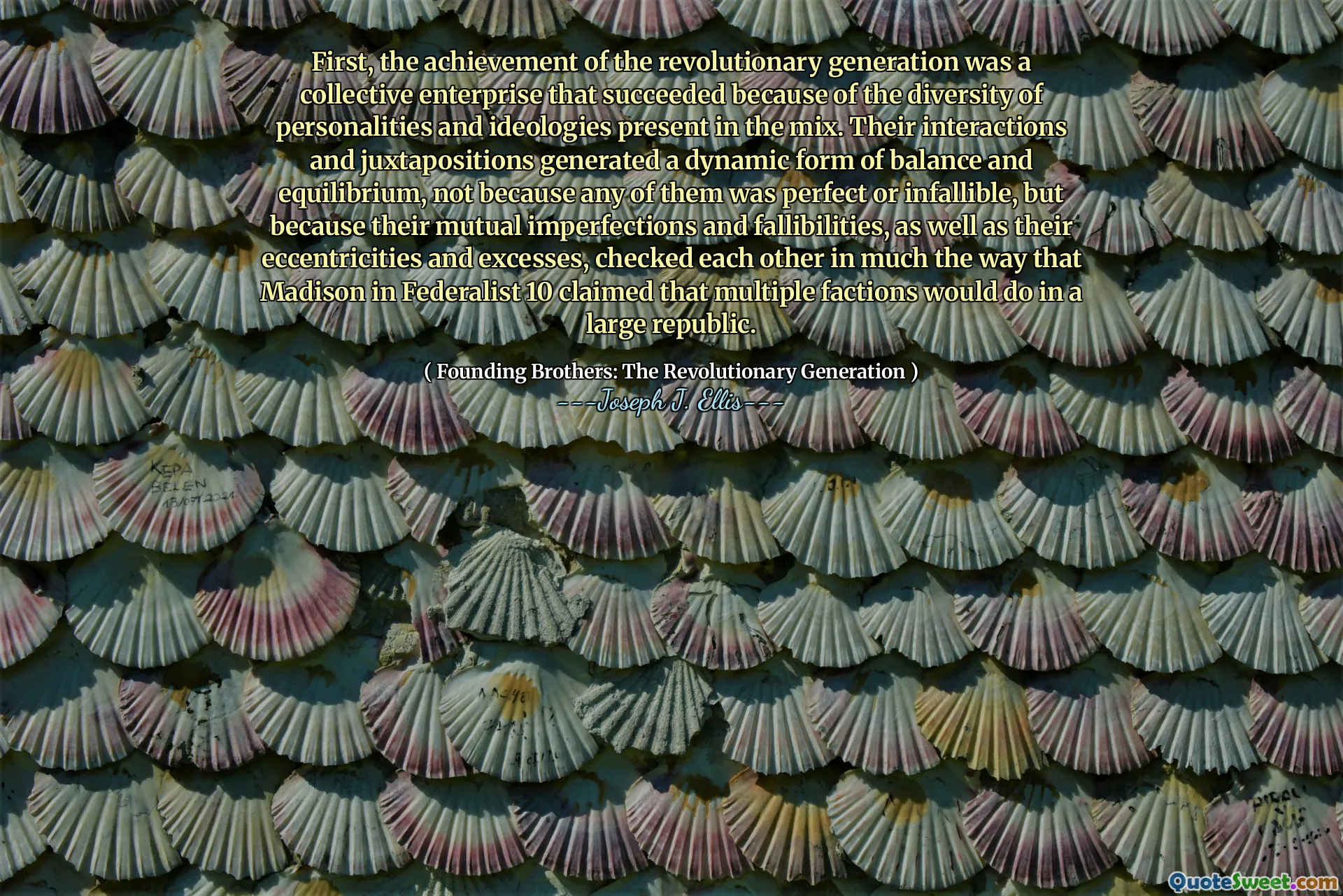
First, the achievement of the revolutionary generation was a collective enterprise that succeeded because of the diversity of personalities and ideologies present in the mix. Their interactions and juxtapositions generated a dynamic form of balance and equilibrium, not because any of them was perfect or infallible, but because their mutual imperfections and fallibilities, as well as their eccentricities and excesses, checked each other in much the way that Madison in Federalist 10 claimed that multiple factions would do in a large republic.
The revolutionary generation's success stemmed from their diverse mix of personalities and ideologies. This variety created a dynamic balance where their interactions fostered cooperation and equilibrium. Rather than being defined by perfection, their shared flaws and unique characteristics served to temper each other, echoing Madison's idea in Federalist 10 that multiple factions in a republic can balance one another's influence.
This collective effort was not about individual brilliance but rather the interplay of different views and strengths that propelled their achievements. It highlights the importance of diversity in achieving common goals, illustrating how the revolutionary leaders' imperfect nature contributed to the overall success of their cause.











